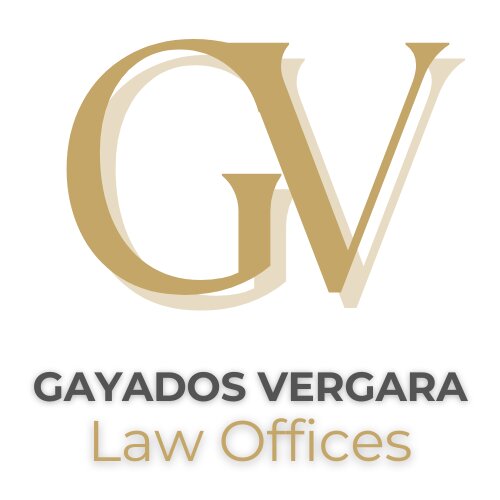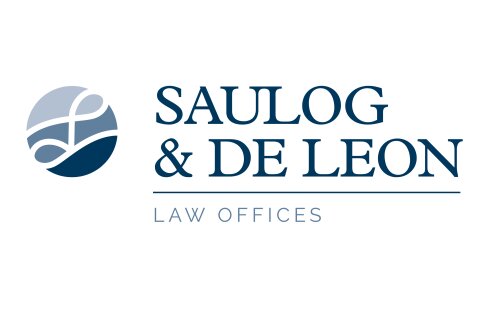Best Government Contract Lawyers in Philippines
Share your needs with us, get contacted by law firms.
Free. Takes 2 min.
Or refine your search by selecting a city:
List of the best lawyers in Philippines
About Government Contract Law in Philippines
Government Contract Law in the Philippines is primarily governed by Republic Act No. 9184, or the Government Procurement Reform Act, which establishes the rules and guidelines for government procurement activities. This area of law dictates how government entities may enter into contracts for goods, services, and infrastructure projects. The government contracting process is intended to promote transparency, competitiveness, and efficiency in the procurement of public goods and services to ensure that the public funds are used effectively for national development.
Why You May Need a Lawyer
There are various scenarios in which individuals or businesses may require legal assistance related to government contracts. Some common situations include compliance with the procurement process, disputes or controversies arising from contract implementation, interpretation of contract provisions, issues of breach or termination of contract, and instances of malpractice or irregularity in the procurement process. Lawyers assist in navigating the complex procedural requirements, advocating for clients' rights, and ensuring adherence to the legal standards set forth by the applicable laws.
Local Laws Overview
The Philippine legal framework for government contracts is established under the Government Procurement Reform Act and its implementing rules and regulations. Key aspects include the following:
- Procurement Process: lt requires open and competitive bidding as the default method, with other procurement methods allowed under exceptional circumstances.
- Public Bidding: The law prescribes a detailed process for public bidding, including the publication of invitations, pre-bid conferences, bid submission, evaluation, and award.
- Transparency and Accountability: All procurement activities must ensure transparency at all stages and hold accountable all parties involved in the procurement process.
- Contract Implementation: Provides guidelines on managing contracts, including the roles of procuring entities and contractors as well as criteria for progress payments and contract amendments.
- Protests and Remedies: Sets forth procedures for protests and appeals to address grievances arising from the procurement process.
Frequently Asked Questions
What is a government contract?
A government contract is an agreement between a government entity and a private party to deliver goods, services, or infrastructure projects. It is bound by specific legal requirements and procedures under the procurement law.
Who can enter into government contracts in the Philippines?
Any legal entity, including corporations and organizations, that meets the eligibility criteria set forth by the procurement law and specific regulations can enter into government contracts.
How is a government contract awarded?
Government contracts are generally awarded through a competitive bidding process intended to ensure fairness and transparency. The lowest calculated and responsive bid is typically awarded the contract.
What happens if there is a breach of contract?
A breach of contract can lead to various remedies, including termination, imposition of penalties, or demands for damages as outlined in the contract terms and applicable laws.
Can contracts be amended after they are awarded?
Contracts can be amended post-award under specific conditions outlined by the law, such as changes in project scopes necessitated by unforeseen circumstances.
What are the penalties for irregularities in government contracts?
Penalties for irregularities might include administrative, civil, or criminal liabilities depending on the nature and extent of the breach of procurement laws and regulations.
How is transparency maintained in government contracts?
Transparency is maintained through required public notices, the obligation for keeping detailed records of the process, and compliance with the provisions of the Freedom of Information Order relevant to government operations.
Can foreign entities participate in Philippine government contracts?
Yes, foreign entities can participate, but their participation is governed by specific rules, which sometimes require joint ventures with local companies or meet certain nationality requirements.
Are there any exceptions to the competitive bidding requirement?
Yes, alternative procurement methods are allowed under certain conditions, such as emergency situations, lease of office space, or small value procurements.
What is a protest mechanism in government contracts?
It is a formal process where bidders can raise objections concerning the procurement process, typically before the award of contract, using mechanisms defined by the procurement law.
Additional Resources
For more information and assistance, individuals can refer to the following resources:
- The Government Procurement Policy Board (GPPB) - Responsible for setting procurement rules and monitoring compliance.
- The Civil Service Commission - Assists with issues regarding government employee conduct in procurement.
- Local governmental legal assistance programs - Often provide free or subsidized legal advice for businesses and individuals engaging in public contracts.
Next Steps
If you require legal assistance with a government contract in the Philippines, consider the following steps:
- Identify Your Issue: Clearly define the legal matter you face, be it compliance, disputes, or contract interpretation.
- Research Lawyers: Seek specialized lawyers with experience in government contracts and procurement law.
- Prepare Documentation: Gather all relevant documents, including contract copies, correspondence, and procurement notices.
- Consult Legal Professionals: Schedule consultations to discuss your case and get tailored legal advice.
- Develop a Strategy: Work with your lawyer to devise a strategy for resolving your issue effectively.
Lawzana helps you find the best lawyers and law firms in Philippines through a curated and pre-screened list of qualified legal professionals. Our platform offers rankings and detailed profiles of attorneys and law firms, allowing you to compare based on practice areas, including Government Contract, experience, and client feedback.
Each profile includes a description of the firm's areas of practice, client reviews, team members and partners, year of establishment, spoken languages, office locations, contact information, social media presence, and any published articles or resources. Most firms on our platform speak English and are experienced in both local and international legal matters.
Get a quote from top-rated law firms in Philippines — quickly, securely, and without unnecessary hassle.
Disclaimer:
The information provided on this page is for general informational purposes only and does not constitute legal advice. While we strive to ensure the accuracy and relevance of the content, legal information may change over time, and interpretations of the law can vary. You should always consult with a qualified legal professional for advice specific to your situation.
We disclaim all liability for actions taken or not taken based on the content of this page. If you believe any information is incorrect or outdated, please contact us, and we will review and update it where appropriate.
Browse government contract law firms by city in Philippines
Refine your search by selecting a city.

















